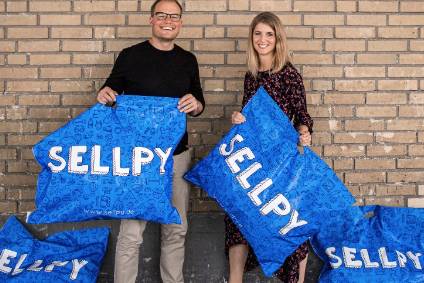
Swedish retailer H&M has taken its online second-hand clothing shop Sellpy to Germany as consumers express a stronger desire for sustainable fashion consumption.
H&M Group first invested in Sellpy in 2015 through its investment arm CO:LAB. As a result of its most recent investments, the group now holds a share of approximately 70%.
Sustainable consumption and the change from a linear to a circular textile economy are an integral part of H&M Group’s sustainability work. New business models in the areas of rental, repair, and recommerce play just as an important part as investments in research and development of new recycling technologies and materials, the retailer says.
“We see that the awareness and demand from our customers for sustainable fashion is constantly growing and is now probably greater than ever. That’s why we’re particularly pleased to be able to offer a new sustainable way of buying and selling fashion, in collaboration with Sellpy,” Thorsten Mindermann, country manager of H&M Germany, notes.
Sellpy CEO, Michael Arnör, adds: “Every garment, that is bought second-hand, saves valuable resources for our planet. As Sweden’s largest online shop for second-hand we want to empower everyone to live circular.”
According to a recent report from resale marketplace ThredUp, the secondhand clothing market is expected to hit US$64bn in the next five years.

US Tariffs are shifting - will you react or anticipate?
Don’t let policy changes catch you off guard. Stay proactive with real-time data and expert analysis.
By GlobalDataSellpy is one of several long-term investments that CO:LAB has made within three different categories: innovative business models, sustainable fashion and enablers as it works to “explore what the future of fashion could be.”
Earlier this month, H&M signed a new pledge committing to accelerate the transition to a circular economy – which environmental sustainability manager Cecilia Brannsten told just-style will be key to enabling a more resilient future for fashion.




